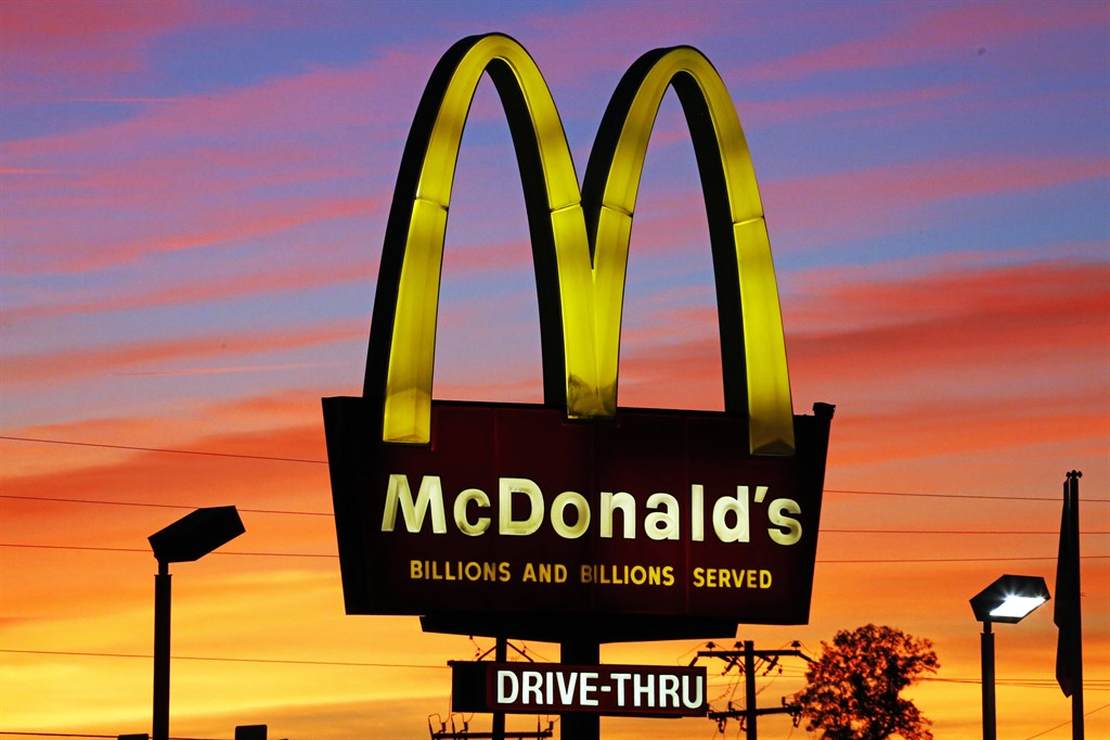
McDonald’s has decided to sell its business in Russia. The fast-food giant has 800 restaurants that employ 62,000 workers in Russia. Thanks to Putin’s war in Ukraine, the era of a cultural touchstone is ending. The company is looking for a Russian buyer.
McDonald’s announced in March that it would temporarily close its restaurants but continue to pay its employees in response to Putin’s invasion of Ukraine. CEO Chris Kempczinski said at that time that the closings would be temporary and that workers would be compensated. McDonald’s was slow to make its decision to suspend its operations but responded to escalating pressure from consumers demanding that McDonald’s firmly show its support for Ukrainians. It is no longer possible for McDonald’s to continue its presence in Russia and is looking for a Russian buyer. Employees will continue to be paid until a buyer is found. It is looking for a Russian buyer who will hire the workers and pay them until the sale closes.
McDonald’s has operated in Russia for a little more than 30 years. It was the first fast food restaurant to open up after the end of the Cold War. When the first restaurant opened in January, 1990, 30,000 Russians lined up to buy their first Big Mac. That happened in Moscow’s Pushkin Square The people didn’t even know what they were lining up for but by the end of the day, a new opening-day record was set for McDonald’s. 27,000 people applied for jobs but only 600 were hired.
Even then, the golden arches of McDonald’s were recognizable around the world. The arches represented an acceptance of Western capitalism which was a new concept that was embraced by those who had been living behind the Iron Curtain. The Berlin Wall had fallen just months before and the Soviet Union was falling apart. The opening of McDonald’s became a cultural touchstone. Younger Russians grew up with McDonald’s. In March when the closings were announced, customers swamped the restaurants to stock up on hamburgers.
Now history is going backwards. Western engagement is shutting down in Russia to punish Putin. Sadly, it will punish ordinary Russians even more. Putin doesn’t care if Russians can buy a Big Mac. Russians eagerly embraced Western influence and the choices it provides. McDonald’s was a treat, a splurge for families, who appreciated a better quality of meat and clean restaurants.
Journalist Yuliya Chernova, who was a young child when Russia’s first McDonald’s outlet opened, recalled in March the ‘deliciousness’ of a milkshake when she tried it for the first time.
The Pushkin Square McDonald’s opened on January 31, 1990, around 18 months before the Soviet Union collapsed. It was American giant’s 11,201st store.
It had taken 13 years of negotiations before the Soviet authorities allowed the venue to open. The discussions began in 1976 and were led by George A. Cohon, the president of McDonald’s Canada.
It then cost $50million to get the operation up and running.
The restaurant chain’s most famous burger – the Big Mac – was known in Russia as the Bolshoi Mak, with bolshoi meaning ‘big’ in Russian.
McDonald’s is leaving Russia but it will keep its trademarks in Russia.
Russians were excited to have access to something they had only seen in movies. At the opening, one customer told the New York Times about the Bolshoi Mak.
One 18-year-old customer told the Daily Mail at the time: ‘I’ve seen places like this in American films but I wondered if I would ever be in one.
‘For months I’ve watched this building being prepared.’
Another added: ‘I’ll be here every week. It is already my favourite food.
READ RELATED: 5th grader arrested for mass shooting threat
Other amazed customers told the New York Times that the ‘Bolshoi Mak’ was ‘something like you’ve never tasted before.’
‘You take a bun, a very tasty bun, and you cut it in half. Then you add some grilled meat, top quality meat, mind you, not like the meat we get here,’ they said.
‘Then some cheese, then very many vitamins and then you add some spinach. And that, comrades, is the Bolshoi Mak.’
It is no longer “consistent with McDonald’s values” to operate in Russia. Though they have been operating in Putin’s Russia all these years, the invasion in to Ukraine must have been the last straw. The company also shut down its operations in Ukraine, for obvious safety concerns. Workers in Ukraine continue to be paid.
CEO Chris Kempczinski said the “dedication and loyalty to McDonald’s” of employees and hundreds of Russian suppliers made it a difficult decision to leave.
“However, we have a commitment to our global community and must remain steadfast in our values,” Kempczinski said in a statement, “and our commitment to our values means that we can no longer keep the arches shining there.”
As it tries to sell its restaurants, McDonald’s said it plans to start removing golden arches and other symbols and signs with the company’s name. It said it will keep its trademarks in Russia.
It’s a shame. The spread of capitalism and empowering individuals to own their businesses improves lives across the globe. Choices for Russians are once again limited because of Putin’s war. Many companies have either suspended their operations in the country or pulled out, mostly due to pressure from Americans. A new isolationism in Russia is being ushered in by Mad Vlad.
McDonald’s owns most of its restaurants. It won’t license its brand so it will lose money on the deal as the sale price won’t reflect the value of the business pre-invasion. “Russia and Ukraine combined accounted for about 9% of McDonald’s revenue and 3% of operating income before the war,” according to Neil Saunders, managing director of GlobalData. McDonald’s expects a $1.2B to $1.4B charge against earnings caused by the decision to leave Russia.
Russians embraced capitalism through fast food restaurants. Former Soviet Union leader Mikhail Gorbachev even appeared in a 1998 ad for Pizza Hut. It opened a few months after McDonald’s in 1990. KFC opened in 1995 an Burger King opened in 2010. It’s not just a burger or a bucket of chicken. It’s hope for the future, for economic freedom after decades under the thumb of the oppression of communism. Putin is afraid of freedom and is desperately trying to drag Russia back to the bad old days of isolation from the rest of the world in order to maintain his power.
Western sanctions and the encouragement of brands to temporarily leave Russia will make it clear to regular Russians that the Ukrainian invasion comes with a high price, even if the true cost is somewhat hidden by state media.
McDonald’s has pledged to continue supporting its 62,000 staff in Russia with full salaries, and have said the lights on the golden arches will only be going off ‘temporarily’.
‘For 66 years, we have operated with the belief that communities are made better when there’s a McDonald’s nearby,’ McDonald’s CEO Chris Kempczinski said in a statement.
Putin’s quest for power is to the detriment of Russians. An entire generation has been raised with a heavy dose of capitalism in their lives. Shutting that down will eventually cause an uprising against him, something that was unthinkable before his weaknesses were exposed during his invasion into Ukraine. Let’s hope that is sooner rather than later.
Source:




